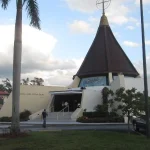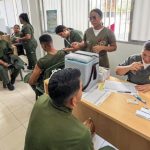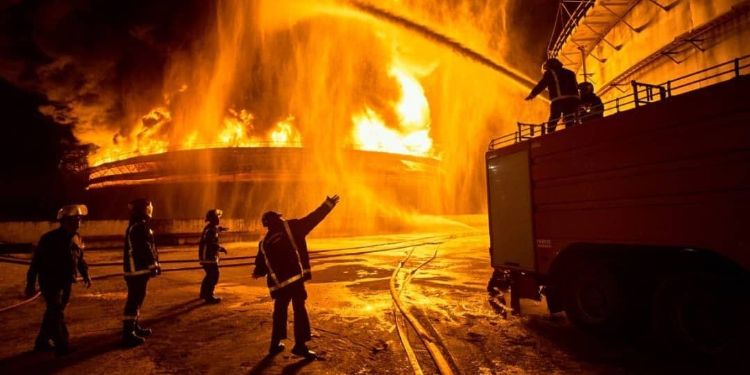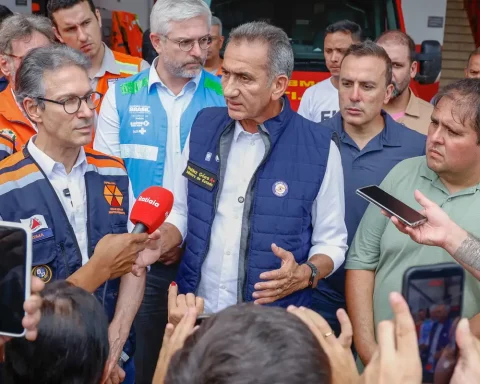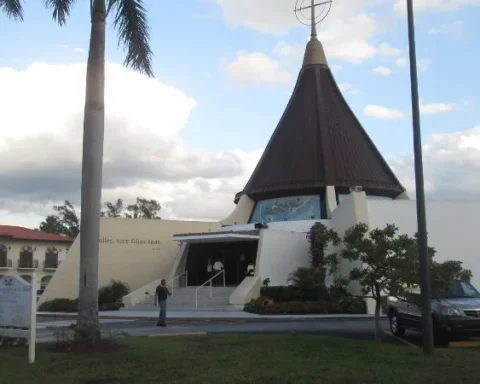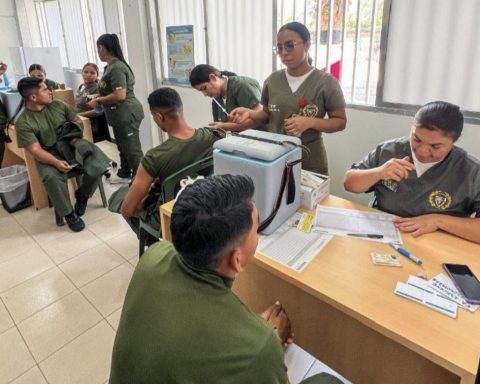A
33 years of his absence physical education, the memory and presence of Professor José Santos Valdés rises up through his former students, children of rural normalism, who refuse to forget a life that allows us to understand the educational project of rural normalism, to whom he gave his most passionate reflections during four decades.
To know the historical depth of the pedagogical laboratory of the revolution, it is necessary to approach his prolific life and work.
1905, November 1, born in Rancho Camargo, Matamoros, Coahuila.
1926. He graduated as a primary education teacher from the Meritorious Normal School of Coahuila.
1926. Principal of the Talamantes Elementary School, Navojoa, Sonora.
1927-32. Area inspector, Hermosillo, Sonora.
1932. Professor at the Central Agricultural School of Tamatán, Tamaulipas.
1933. Professor at the Central Agricultural School of Aguilera, Durango.
1933-35. Director of the Rural Regional School of Aguilera, Durango.
1935-37. Head of the Cultural Mission number 18 in Querétaro, Veracruz and Tabasco.
1937. Head of a brigade, the only one in the country, in La Laguna, leading three Cultural Missions and an Institute of Scientific Research.
1937-39. Director of the Regional Peasant School of Galeana, Nuevo León.
1939-40. Professor at the National School of Agriculture of Chapingo.
1939. General Secretary of the Single Union of Workers of Higher Peasant Education (Sutesc).
1940-43. Director of the Rural Normal School of Tenería, state of Mexico.
1943. Director of the Rural Normal School of Chicontepec, Veracruz.
1943. Director of the Rural Normal School of Ciudad Valles, San Luis Potosí.
1944-48. Inspector of Cultural Missions. He heads the Urban Mission number 2, the rural Cultural Missions 13, 14, 19 and 21, located in Sinaloa, Nayarit and Colima; the following year (1945) he supervises number 23, which operated in El Jagüey, Melchor Ocampo, Zacatecas; also number 39 in Tlatelulco, Tlaxcala. Later he supervised the work of the 20, 23 and 26 in Durango, Tabasco, Zacatecas and Aguascalientes. He closed the year supervising missions 23, 18 and 26, located in Zacatecas, Jalisco and Aguascalientes.
1948-55. Director of the General Matías Ramos Santos Rural Normal School, in San Marcos, Loreto, Zacatecas.
1955. Director of the Rural Normal School of El Mexe, Hidalgo.
1956. Professor at the Practical School of Agriculture in Santa Teresa, Coahuila.
1958. Visitor of the Directorate of Agricultural Education.
1959. Director of the Normal and Preparatory School of Ciudad Victoria, Tamaulipas.
1960. Inspector of Foreign Normal Education in the north of the country, covering the rural normal schools of Ricardo Flores Magón and Salaices, Chihuahua; J. Guadalupe Aguilera, Durango, and Santa Teresa, Coahuila.
1967. Inspector of Normal Rural Education throughout the country.
1971. He retires from the public educational service.
1990. He died on August 5 in Gómez Palacio, Durango.
In addition to this transhumant teaching life, his journey has bequeathed us 18 books, essays, conferences, interviews, translations and countless journalistic articles concentrated in 20 volumes of his complete works.
His detractors used slander, falsehoods and unhealthy interests against him. He was the first to write a narrative that differed from that of the government regarding the assault on the Madera barracks in Chihuahua (1965). He called the guerrillas led by professor Arturo Gámiz and doctor Pablo Gómez martyrs. He pointed to the action as the result of a neolatifundismo underhanded by Governor Práxedes Giner Durán. Under threat he left the state. Those in power sought to blame Maestro Valdés for what happened on September 23, 1965. From a distance, the survivor Raúl Florencio Lugo points out: He did not participate militarily with the guerrillas, his support was political for the social movement, no more
.
Accounts are not settled before the outstanding Cardenista educator, revenge, electoral political pragmatism, flattery, cynicism and arrogance attack his name again. In Lerdo, Durango, the municipal president promoted that the name of the José Santos Valdés boulevard be changed to that of Governor José Rosas Aispuro. He based his actions on a political calculation for the support provided by the State Executive to the municipality, budgets in exchange for artificial recognition, Luis Hernández Navarro points out. not even dead they let master José Santos Valdés rest in peace
.
Associations of former rural normalist students have expressed their consideration before the figure of the Lagunero educator: the children of the public school, teacher trainers, academics, former students and rural normalist students recognize that the influence, example and validity of Professor José Santos Valdés remain firm, capable of oxygenating, giving rise to an ethical and pedagogical reinvention of the teaching function in the face of the needs of the 21st century, we manifest ourselves to recover the thought and action of the teacher José Santos Valdés García de León. We recognize in him more than a person, an educational project that has made the cultural, educational, economic, political and moral improvement that the Mexican Revolution promised a reality.
In the centenary of rural normalism, the best tribute he deserves is to recover his work, discuss it and make it a common and daily element where that ferment between school and community is felt, as the valdesista teaching promoted. Promoting historical understanding and the value of an educational project in the hands of those who, like José Santos Valdés, despite adversity, laid the foundations for public, popular, secular and democratic education, will allow oblivion, slander and revenge not to win. the battle, nor continue to hurt memory.
* Doctor of history and author of the book The seed in the furrow: José Santos Valdés and the Mexican rural school (1922-1990)







